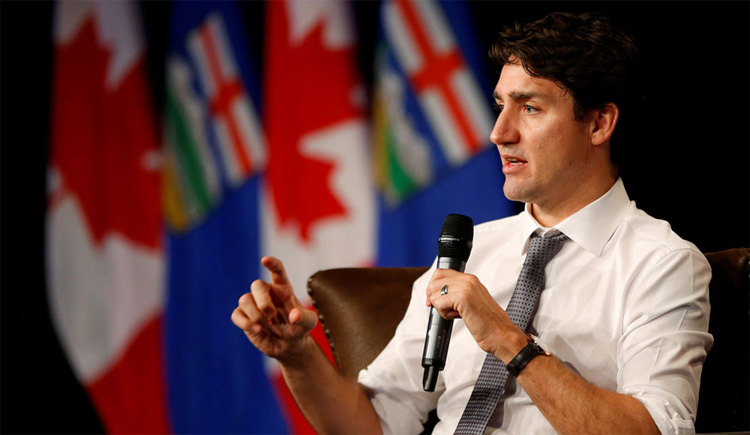Canada has long been a favored destination for international students, thanks in part to its welcoming policies such as the Post-Graduation Work Permit (PGWP) program. This initiative allows graduates to obtain an open work permit after completing their studies, enabling them to gain valuable Canadian work experience. However, recent developments suggest that significant changes may be on the horizon for the PGWP program, signaling a potential shift in how Canada aligns its immigration policies with labor market needs. Upcoming Changes to Canada’s Post-Study Work Rights
What You Need to Know About Canada’s Post-Study Work Rights
Today, we dive into a hot topic that’s making waves in Canada’s immigration landscape: the impending reforms to the Post-Graduation Work Permit (PGWP) programmed. Whether you’re eyeing Canada for your studies or already making plans, this update could affect your journey significantly.
For over 15 years, Canada has been a beacon for international students, offering a pathway to gain valuable work experience after graduation through the PGWP. This policy has not only attracted a diverse pool of talent but has also contributed to the country’s educational and economic growth.
Understanding the Current Landscape
For over a decade, the PGWP program has been pivotal in attracting international talent to Canada. Graduates from post-secondary programs have enjoyed the opportunity to secure work permits for up to three years, irrespective of their field of study or location. This flexibility has not only supported the growth of Canada’s international student enrollment but has also enriched the Canadian workforce with diverse skills and perspectives.
Anticipated Reforms and Their Implications
Recent statements from Immigration Minister Marc Miller and an internal IRCC briefing document indicate a forthcoming overhaul of the PGWP program. The proposed reforms aim to better align the program with Canada’s labor market needs. This could mean prioritizing work permit eligibility for graduates entering occupations facing shortages while potentially limiting access for others.
Key Considerations for Future Applicants
Impact on International Students
If implemented, these changes may affect future international students planning to study in Canada. It is crucial for prospective applicants to stay informed about the evolving policies and understand how these reforms could impact their eligibility for a PGWP upon graduation.
Consultation Process
The Immigration, Refugees and Citizenship Canada (IRCC) has initiated consultations with provincial and territorial governments to gather insights on the proposed reforms. Stakeholders, including educational institutions and peak bodies, have been invited to provide feedback on various aspects of the PGWP program’s future direction.
Potential Changes
The survey circulated by IRCC outlines several key questions, including the possibility of linking PGWP eligibility to occupations facing shortages, revising the frequency of updates to the occupational shortage list, and considering additional criteria such as job offers aligned with labor market needs.
Looking Ahead: What You Can Do
For students and recent graduates considering Canada as their study abroad destination, it’s essential to monitor developments closely and seek expert advice. Understanding the implications of these potential changes and preparing accordingly can enhance your chances of navigating the visa application process smoothly.
Implications for You
If you’re planning to study in Canada or are currently enrolled, it’s crucial to stay informed about these potential changes. Understanding the evolving landscape can help you make informed decisions about your educational and career goals. Whether you’re considering a tourist visa, study permit, or work permit, staying ahead of policy changes is key.
How We Can Help
At studentvisacanada.in, we’re committed to providing you with the latest updates and expert advice on navigating Canada’s immigration processes. Our team of experienced consultants is here to assist you with:
- Understanding the visa application process.
- Preparing required documents.
- Providing insights into policy changes and their implications.
- Offering personalized guidance tailored to your unique circumstances.
Contact Us for Expert Advice
Navigating Canada’s immigration policies can be complex, especially in light of upcoming reforms. Whether you’re planning to study, work, or visit Canada, our team is dedicated to helping you achieve your goals. Contact us today for a free consultation and personalized advice tailored to your specific circumstances.

Changes to Canada’s immigration policies, including the Post-Graduation Work Permit (PGWP) programme, are under review by the government. The information provided in this article is based on current developments and may be subject to change. For the latest updates and personalized advice regarding your specific situation, we recommend consulting with our immigration experts or visiting official government websites. Source Cmonitor.icef.com anada’s Immigration Minister signals that changes are coming to post-study work rights – ICEF Monitor – Market intelligence for international student recruitment
Stay informed, stay proactive, and let’s navigate this journey to Canada together!
Portugal Tightens Immigration Rules: New Work Visa Requirements Introduced
Upcoming Changes to Canada’s Post-Study Work Rights
Also read:
- Why Canada’s 32% Drop in Study Permits for Indian Students in 2024 Could Affect Your Future Plans
- Canada Launches Rural and Francophone Community Immigration Pilots: A New Era for Skilled Immigrants
- Canada Expands Post-Graduation Work Permit (PGWP) Eligibility: A Gateway to Endless Opportunities for Indian Students
- Canada Takes Action to Combat Fraud in the Express Entry System
- Canada Announces Big Changes to Express Entry Immigration System: What It Means for Indian Aspirants
FAQ
What is the Post-Graduation Work Permit (PGWP), and how does it benefit international students?
The Post-Graduation Work Permit (PGWP) is an open work permit issued to graduates of Canadian post-secondary institutions. It allows them to gain valuable work experience in Canada after completing their studies. The duration of the permit depends on the length of the study programme completed, up to a maximum of three years. This permit is beneficial as it enables graduates to work in any occupation and anywhere in Canada without needing a job offer.
Why are there potential reforms to the PGWP programme?
Recent signals from Canada’s Immigration Minister and Immigration, Refugees and Citizenship Canada (IRCC) suggest that reforms to the PGWP programme are being considered. These reforms aim to better align the issuance of work permits with Canada’s labour market needs. The goal is to ensure that graduates are employed in occupations where there is a shortage of skilled workers, thereby optimizing the economic benefits of international education.
How might the proposed reforms impact international students?
Proposals under consideration include limiting PGWP eligibility based on occupations in demand, requiring proof of job offers aligned with these occupations for permit extensions, and implementing stricter criteria that could affect future applicants. These changes could potentially reduce the overall number of PGWP holders while increasing the focus on graduates in high-demand fields.
When are these changes expected to take effect?
While specific timelines for implementing reforms have not been finalized, consultations with provincial and territorial governments, educational institutions, and stakeholders are currently underway. The government aims to gather input and feedback before making any decisions. It’s important for prospective and current students to stay informed about developments that may affect their plans to study and work in Canada.
How can students and graduates prepare for potential changes to the PGWP programme?
To prepare for potential changes to the PGWP programme, students and graduates should stay updated on immigration news and policy updates. They can also consult with immigration experts or advisors who can provide personalized guidance based on individual circumstances. Keeping abreast of developments and understanding the impact of these changes on career plans in Canada is crucial for making informed decisions.



